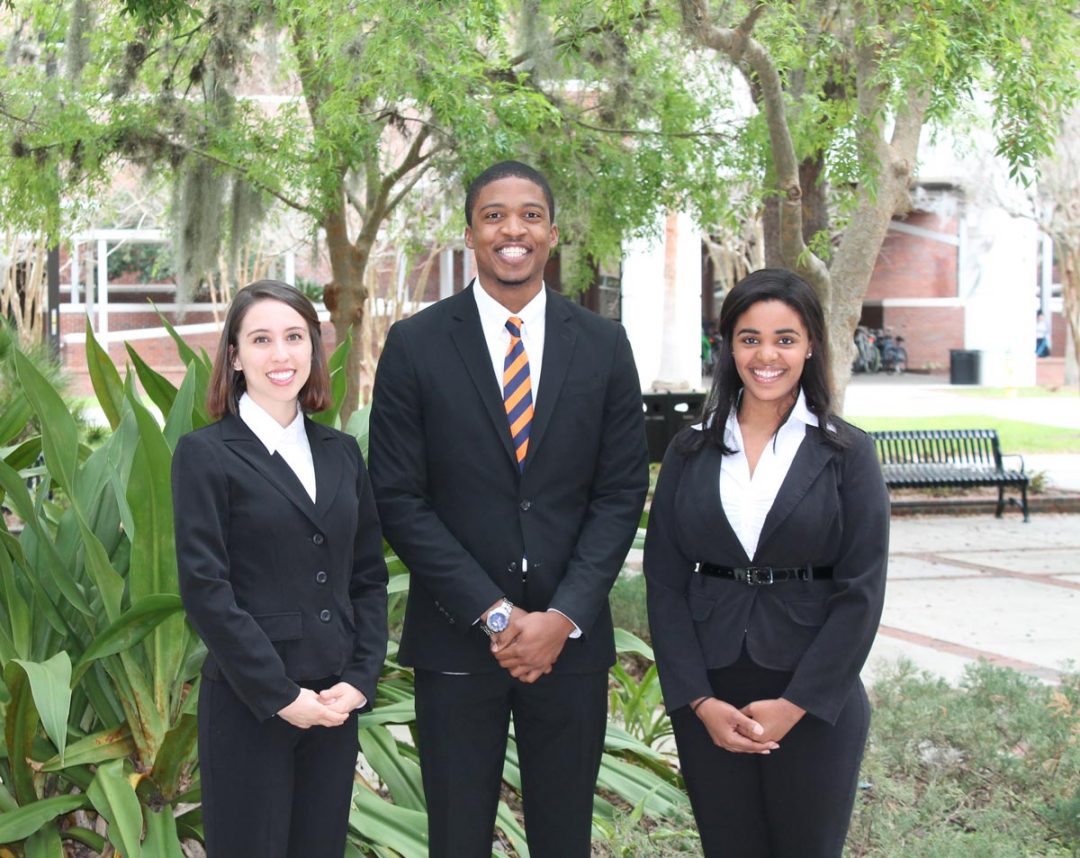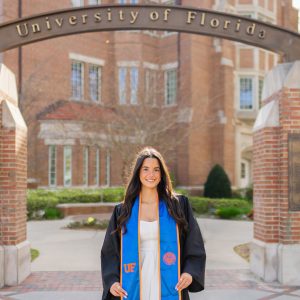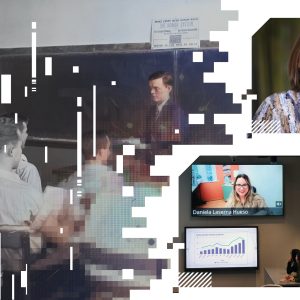Student Spotlight: Jordan Mullings
A major reason Jordan Mullings wanted to be a part of UF MBA at the Hough Graduate School of Business was the program’s successful history in national case competitions.
Now, Mullings has added his own mark to that winning tradition. Mullings, along with two students from UF’s College of Public Health and Health Professions, won first place at the CLARION Competition–a national healthcare case competition–on April 16 in Minneapolis.
Learn more about Jordan, why medicine is one of his passions, and the impact UF MBA has had on him.
Name: Jordan Mullings
Hometown: Fort Lauderdale, Florida
Program: UF MBA (Two-Year Full-Time program)
Student Organizations/Activities
- MBA Association—First Year Cohort Representative
- UF Global Health Case Competition
- University of Minnesota’s Clarion Case Competition
Why did you decide to pursue an MBA?
I have always had an interest in being a part of systemic change, specifically in healthcare. After spending time working for a nonprofit, I saw the MBA as a great opportunity to grow and increase my skill set and understanding of business principles. I’m hoping to take all that I’ve learned from the MBA program to maximize the impact I can have in the future.
Why did you choose UF MBA at the Hough Graduate School of Business?
To be honest, I wasn’t considering an MBA this early in my journey. After reconnecting with one of my undergraduate mentors who introduced me to the admissions team, I started giving it some thought. Attending info sessions, participating in the GMAT boot camp, and considering all that the program had to offer, I realized this was an amazing opportunity—I’m grateful the program chose me.
How has your time at UF MBA impacted you thus far?
I would say the program has really taught me to tell my story better. I tend to be pretty long-winded when speaking about topics I’m passionate about, which easily turns into rambling. Learning how to properly give a 30-second pitch, succinctly explain my background and what makes me unique is a really important skill, and I’ve definitely come a long way.
Why did you compete in the CLARION competition?
From day one, I noticed that one of the trademarks of the MBA program was its stellar performance in national case competitions. These competitions seem to be one of the best ways to apply all that you learn in the classroom to solving difficult problems, and being able to do that on a complex healthcare topic was very rewarding. The CLARION competition seemed like the perfect intersection between what I’ve learned during my first year and my passion to address important issues in healthcare.
What made the competition challenging?
The most challenging part of this case was coming up with the root causes of the problems, and sticking to a timeline. Since the team had so much time to prepare (2-3 months), we knew a lot was expected from us. Sifting through all of the data to determine what was essential took up a significant amount of time—probably more than we would have liked. Once we got over that hurdle, everything seemed to fall into place.
What was it like working with non-business students in this competition? How did the team create chemistry?
I really enjoyed working with students from other disciplines. The purpose of the CLARION competition is to foster inter-professional collaboration, so I knew that all of us would present different perspectives on the issues. Since each of us had a specific vantage point, we developed chemistry by finding common ground and coming to a consensus on major decisions of the case before moving on to another point. Each member of the team focused on their area of expertise for anything that required further analysis.
What were the keys to winning this competition?
Persistence—that’s a major key. There were so many times when it felt like we were spinning our wheels and suffering from information overload, but there was strength in our struggle. We had to put in the hours, but finding ways to have fun and getting to know each other better throughout the process seemed to really make the difference.
What did it mean to you and the team to win?
It meant so much. Going in, I thought that we were the underdogs. It was only UF’s second year participating in the competition, and other schools like UNC and VCU had won multiple times in past years. We were also competing against teams with medical, pharmacy and dental students, some of whom had worked directly with the Native American population that the case focused on. To win in spite of all those things meant so much to us, and we all considered it to be a huge blessing.
You also competed in UF’s Global Health Case Competition. What do you find appealing about these sorts of academic competitions?
These case competitions are unique ways of applying what you’ve learned in a format that may be employed in the workplace. They also encourage teamwork—learning how to work with people who think and process information differently than you do, and who have different strengths and skill sets are extremely important. Another benefit of these competitions is the opportunity to build relationships. In fact, I met Karen, one of my CLARION teammates, at the Global Health Case Competition. We were competing against each other at the time, but she encouraged me to get involved with CLARION afterward, and I’m glad that I did.
Much of your prior work experience/internships involve medicine. Why is this field a passion of yours?
My passion for medicine stems from the fact that my older brother has a developmental disability. He was given a poor prognosis of six months when he was born, but is turning 27 this year. His miraculous survival, and the complexity of his genetic anomaly is responsible for my deep conviction to understanding and applying medicine and better healthcare to vulnerable populations.
Tell us about your research project at Harvard Medical School. What was that experience like?
My experience was extensive. I worked in a lab for eight weeks with a team devoted to finding a cure for Alzheimer’s disease. I was unaware of how involved the process of drug development can be, from literature review and lab protocols in the early phases to clinical trials and department approval in the later phases. My favorite part of the program was interacting with the other students, shadowing physicians and researchers, and attending the different seminars on professional development and careers in academic research and healthcare.
What career path do you envision after completing the UF MBA program?
I envision a career path in physician leadership, specifically in improving hospital performance. Historically, there is a discontinuous relationship between physicians and hospital administrators—physicians are typically clinically-focused while administrators are primarily fiscally driven. When there is conflict, patient outcomes are adversely affected. With both degrees (MD and MBA), I hope to bridge that gap.
Tell us something about yourself that most people don’t know.
I can fall asleep just about anywhere—my family and roommates have affirmed this enough times. I think of it as a gift—I don’t worry about insomnia.
How do you spend your time when not studying?
I enjoy dancing, reading, staying active, and having meaningful, thought-provoking conversations.
If you had a million dollars, how would you spend it?
I would pay off my parents’ mortgage, donate to missions that rescue children from sex slavery in India, and save and invest the rest.




